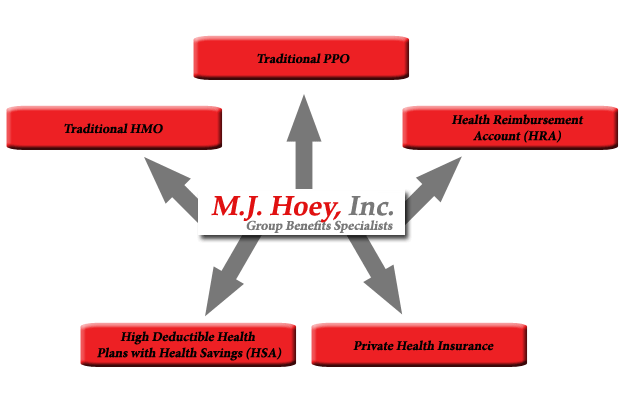|
|
|
|
|
|
|
|
|
|
 |
We offer the resources that ensure that the choices for your clients make sense. |
 |
|
Kansas City employers for many years have sponsored traditional PPO plans for their employees. A traditional PPO is a health insurance plan that has In-Network and Out-of-Network benefits. These plans typically feature an office visit copay, a deductible and coinsurance for major medical services, and a pharmacy copay for prescription drugs. |
|
Some Kansas City Employers sponsor a traditional HMO. This is a health insurance plan that has benefits only if an insured uses an In-Network doctor or facility. Traditional HMO plans often do not have a deductible or coinsurance for major medical, instead featuring copays for each different type of service, including pharmacy. There are no Out-of-Network benefits with a traditional HMO.
|
|
Health reimbursement arrangements are becoming more popular with employers. An HRA generally takes a PPO Plan and makes some changes, like increasing the deductible and out-of-pocket, therein reducing premiums. With the premium savings, the employer opens a "Notional" account for each employee, and employees are reimbursed for certain out of pocket costs associated with their health plan. These plans generally have In-Network and Out-of-Network benefits, using PPO Networks. |
|
HSA's are tax-exempt trust or custodial accounts that are inextricably connected to qualified high deductible health plans (QHDP), the funds from which can be used, tax free, to pay for qualified medical expenses for the account holder and eligible family members. These plans are always linked to PPO Networks, and have In-Network and Out-of-Network benefits. |
|
| Many individuals who have group health insurance options for their dependents opt instead for private health insurance, which can be significantly less expensive for people who are in good health. Those qualified for such coverage range from age 6 weeks to 64 1/2 years old. | |